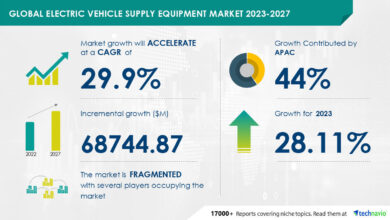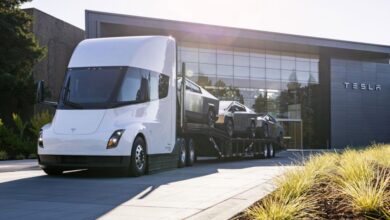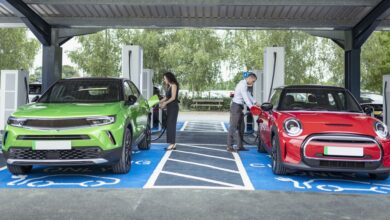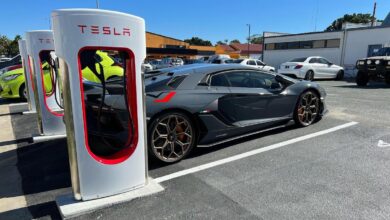Treasury eases finalized electric vehicle tax credit to allow for Chinese graphite
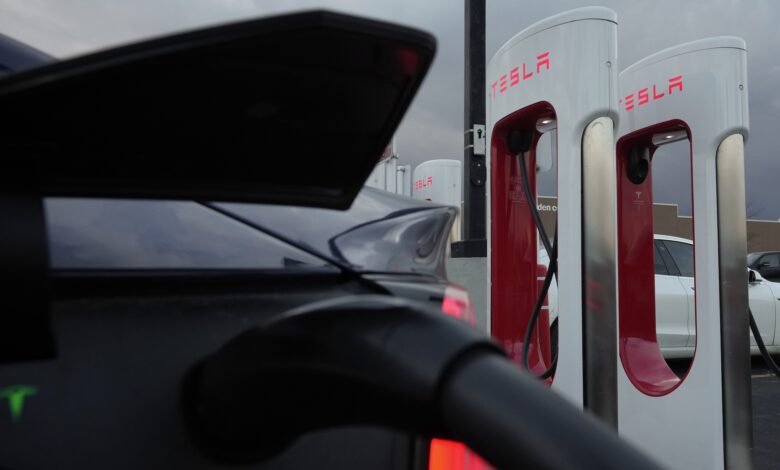
The Biden administration has eased restrictions for its electric vehicle tax credit, giving automakers more time to adjust to sourcing requirements meant to reduce reliance on China for materials.
The Treasury Department announced Friday that it has finalized rules for a tax credit that serves to encourage sales of electric vehicles while taking aim at foreign entities of concern, such as China, Russia, North Korea, and Iran, and their grip on critical minerals and EV battery components.
But the rule determining which EVs are eligible for the tax credit exempts compliance with the restrictions for “certain impracticable-to-trace” battery materials — particularly graphite, the main component in a lithium-ion battery anode, and whose supply chain is heavily dominated by China — until 2027, giving automakers two more years than in the previous proposal.
The new rule also differs from the previous proposal through its adoption of a more stringent method of determining the percentage of materials that are compliant with the foreign entity of concern requirements. Auto manufacturers, however, are allowed to use a less strict process up until 2027, which would require a close look at the locations of where 50% or more of the critical minerals were extracted and processed.
“Today’s actions from Treasury and DOE provide clarity and certainty to an EV marketplace that’s rapidly growing,” John Podesta, senior White House climate adviser, said in a written statement. “The direction we’re headed is clear — toward a future where many more Americans drive an EV or a plug-in hybrid and where those vehicles are affordable and made here in America.”
The finalized rules stand as a concession to automakers, which urged the administration to loosen the proposed requirements, as some stated it was impractical to try to block Chinese-produced graphite when the country dominates the supply chain. Many argued that, without a reprieve, many electric vehicles wouldn’t be able to qualify for the tax credit. Some groups, such as Volkswagen, have called for graphite to be completely exempt from restrictions under the rule.
Others, however, see the reliance on China as a national security concern that needs to be addressed sooner rather than later and are calling for the United States to create other trade partnerships.
“While recognizing the need for measures to expedite EV deployment, FEOC exemptions for any battery materials should be temporary: We need a clear exit strategy, lest we continue our dependencies on adversaries and further undermine the competitiveness of U.S. and allied critical minerals projects,” said Abigail Hunter, executive director of energy and defense nonprofit SAFE’s Center for Critical Minerals Strategy.
Furthermore, some observers noted that the traceability test would be difficult to implement in the time span that the tax credit requires.
“You need to basically start working with your entire supply chain so that different companies in different countries can prove at the end of the day exactly where your mineral comes from and that there’s no foreign entity of concern involved,” said Tom Moerenhout, a research scholar and critical minerals expert at Columbia University. “And to do that within 2 1/2 years is complicated.”
The rule determines which electric vehicles are eligible for the tax credit worth up to $7,500 under the Inflation Reduction Act — $3,750 if critical mineral requirements are met and $3,750 if battery components are met. The guidance for manufacturing batteries will begin in July, requiring 60% of battery components to be manufactured in North America. The critical minerals component of the regulation will be set to 50% this year and increase to 60% in the next year.
CLICK HERE TO READ MORE FROM THE WASHINGTON EXAMINER
The rule is getting pushback from a key Democrat, Sen. Joe Manchin (D-WV), one of the key writers of the Inflation Reduction Act. Immediately following the rule’s release, the West Virginia Democrat said he plans to introduce a disapproval resolution that would undo the Biden administration’s rule, blasting the regulation as going against the legislative intent of the original bill.
“The entire point of the Inflation Reduction Act was to provide American businesses the incentives they need to bring our energy and manufacturing supply chains back to the U.S., reduce our dependence on foreign adversaries and create good-paying American jobs,” the senator wrote. “Instead of embracing those opportunities to benefit our country, the Administration is so desperate for Chinese EV components that they are blatantly breaking the law by implementing a bill that they did not pass and ignoring what Congress agreed upon at the expense of American workers and taxpayers, and the consequences are jeopardizing our energy and national security and pulling us further into debt.”
